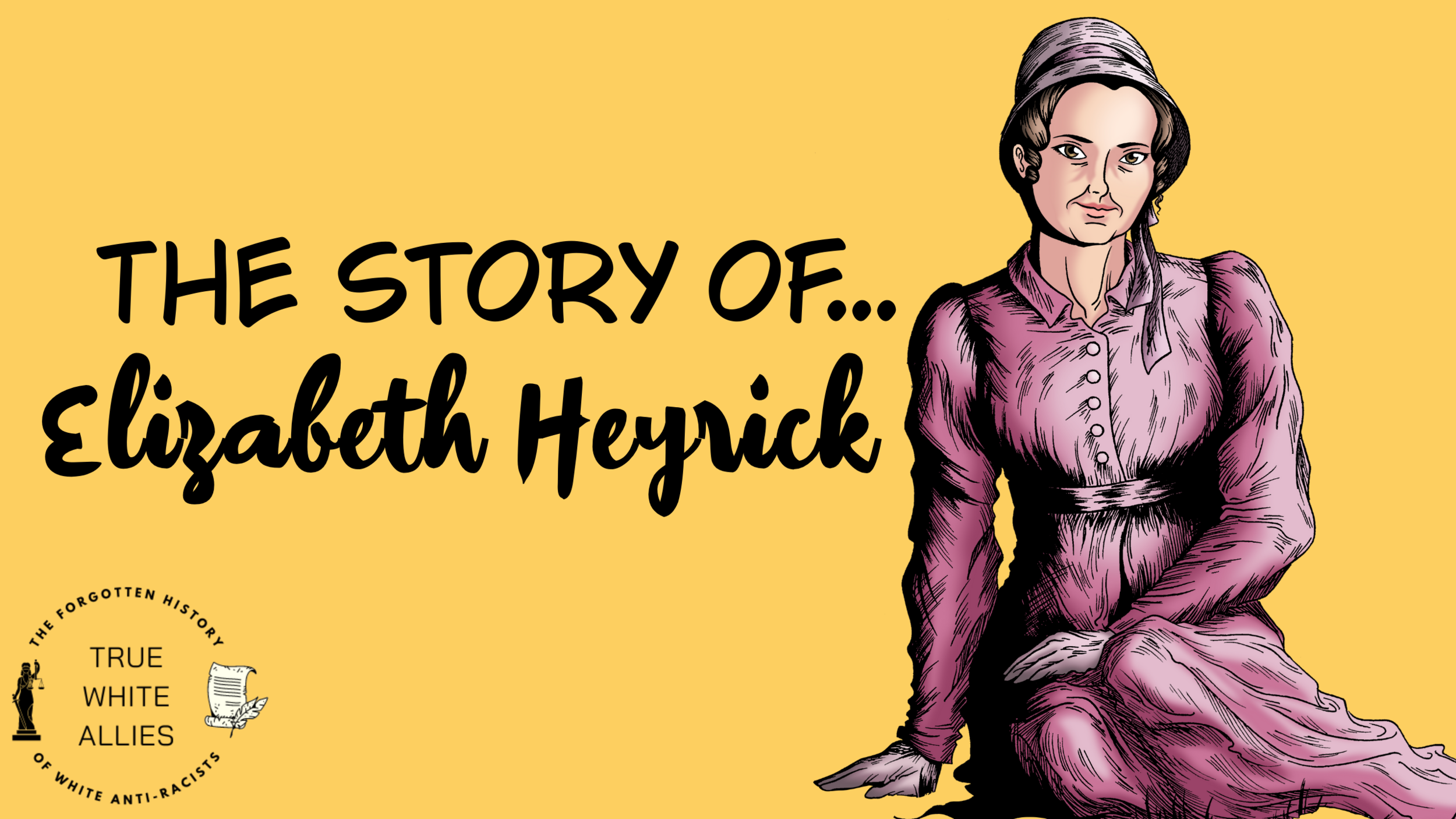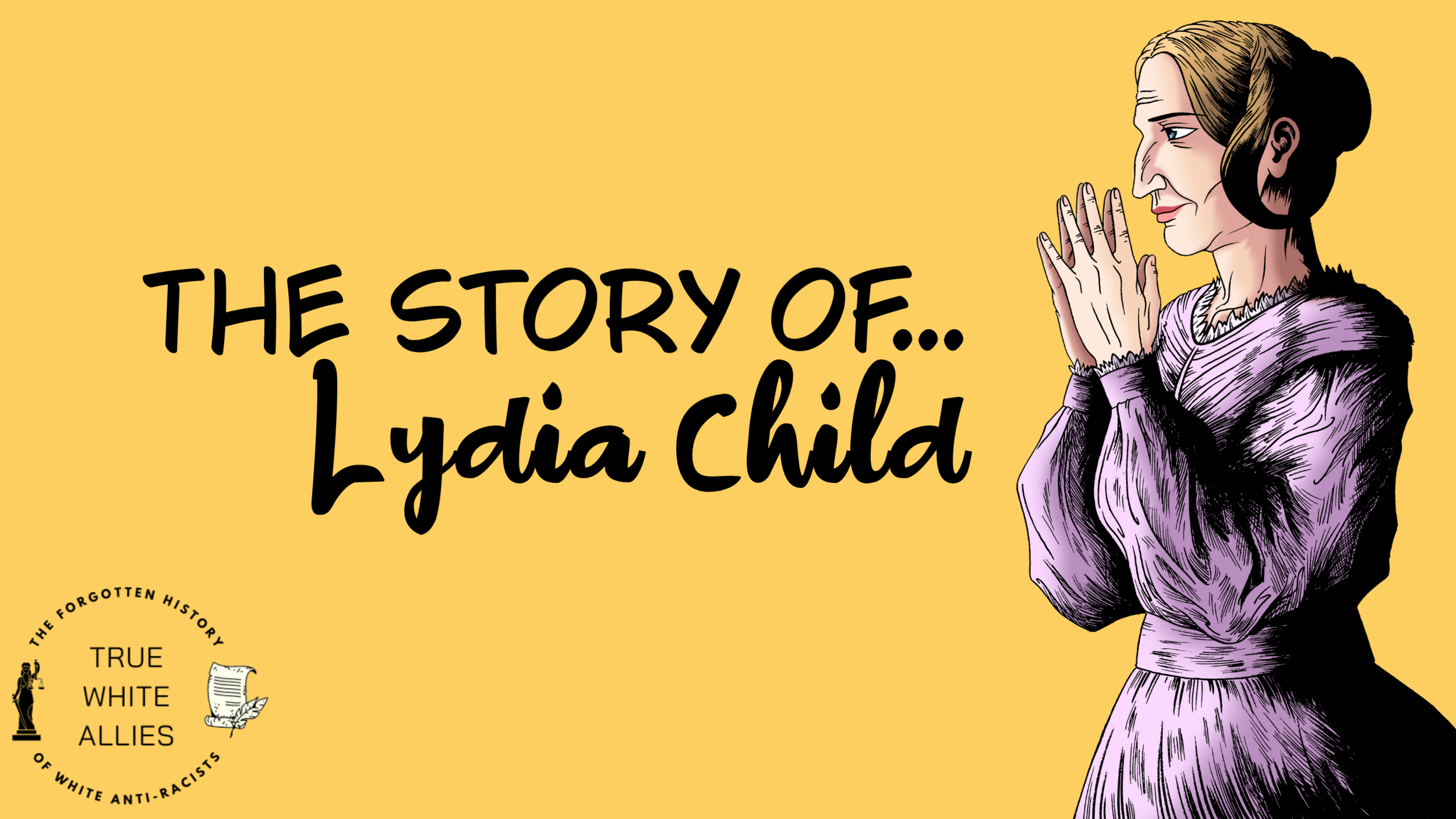The Story of Abby Kelley
In our video and blog series, we've been focusing on examples of allies in everyday life who can teach us how to be anti-racist in the workplace. We're finishing this phase by talking about the forgotten history of Abby Kelley Foster, a Quaker advocate for equal rights for Black people and women.
In some cases, people who claim to be allies aren't willing to let go of their privilege and be placed on equal footing with people of color. Abby Kelley Foster didn't just fight for equality; she was ready to risk her freedom and social standing.
“I rejoice to be identified with the despised people of color. If they are to be despised, so ought their advocates to be.”
Who was Abby Kelley Foster?
Abby Kelley was born into a prominent Quaker family in 1811 in Massachusetts. She was an exceptionally bright child and attended the best private elementary school in the area. However, no private secondary school in the region accepted female students, so she attended New England Friends Boarding School in Providence to continue her studies. When she graduated, she became a teacher and became even more involved in anti-slavery and activism.
She married an abolitionist, Stephen Symonds Foster, and they engaged in activism together. Soon, the couple purchased a farm in Worcester, Massachusetts, a stop on the Underground Railroad called "Liberty Farm."
Abby Kelley Foster was a part of the Underground Railroad
Abby Kelley Foster and her husband Stephen risked arrest, legal prosecution, and social stigma by offering their home as a stop on the Underground Railroad. The Underground Railroad wasn't a railway - it was a secret network of routes and safe houses in the US used by enslaved people to escape slavery.
They would travel at night on foot, as stowaways on trains or boats, or in horse-drawn wagons. Their end destinations were free states (those states where slavery was illegal, mainly in the North) and Canada.
Abby Kelley was an 'Ultra' – She believed in full equality for Black people.
When she was a young woman, Abby Kelley joined the Female Anti-Slavery Society of Lynn (50 miles from Worcester). She collected signatures to petition the Federal Government to end slavery in the District of Columbia. The idea was that if slavery were made illegal in the capital, it would influence other parts of the country.
She soon became an 'Ultra." That was the term used to describe people who didn't just believe in the abolition of slavery – they also believed in full civil equality for all Black people. She also believed in "non-resistance." That meant she didn't just oppose war, but she also spoke out against all forms of government coercion and wouldn't serve on juries, vote, or support the military.
She was soon slandered as a "Jezebel" by her critics, and other activist women in the US were called "Abby Kelleyites." People also started calling radical abolitionist beliefs "Abby Kelleyism."
As she became increasingly radical, she was chosen to attend the Anti-Slavery Convention of American Women as a delegate from Lynn. The convention specifically ensured that Black women were invited and attended. Think about this in our current context – it's still common to see events about women's empowerment without any Black women or women of color on the panel! Amazingly, they understood this in 1837, yet some people still don't get it today.
In 1838, Abby Kelley attended an anti-slavery convention at Pennsylvania Hall in Philadelphia. There, she gave an impassioned public speech against slavery, her first. She even faced an angry mob outside the building! However, that didn't deter her – she continued to give speeches around the country.
Abby Kelley Foster fought for The Right to Vote for everyone.
Abby Kelley remained another example of everyday allies after the American Civil War. After the war ended, the government introduced the 15th Amendment in 1870. This Amendment was designed to extend voting rights to Black men.
(Remember, no women could vote until 1920. Different groups of women, such as Native Women, couldn't vote in certain states until 1962, and all Black people often faced insurmountable obstacles when trying to vote until the Voting Rights Act was passed in 1965.)
In 1870, even white women couldn't vote. White women's rights activists, including Susan B. Anthony and Elizabeth Cady Stanton, resorted to racist statements to prove they were more worthy of the vote than Black men.
“Think of Patrick and Sambo and Hans and Yung Tung who do not know the difference between a monarchy and a republic, who never read the Declaration of Independence, or Webster’s spelling book, making laws for Lydia Maria Child, Lucretia Mott, or Fanny Kemble.”
When an oppressed group gains rights, it's good for all oppressed groups. To this day, these toxic attitudes continue to poison feminism, with some feminist groups willing to 'throw people of color under the bus' to gain more rights. But rights aren't pie – the slices aren't running out.
Sadly, Abby Kelley Foster died in 1887 – just one day before her 76th birthday. However, she can still teach us a lot about how to be anti-racist in the workplace.
How was Abby Kelley Foster a True White Ally?
Unlike many other 19th-century white women fighting for voting rights, Abby Kelley Foster wasn't willing to sacrifice the rights of people of color. She fought tirelessly for the rights of all people in America to vote.
Abby Kelly Foster risked her reputation and freedom to fight for the rights of Black Americans, even offering her own home as a stop on the Underground Railroad.
Quick Takeaways – How to Follow Abby Kelley Foster's Example
Rights aren't pie! Rights for others won't take anything away from you – Better opportunities for others don't take away your rights. Laws and policies that provide that access to groups that have historically been excluded are not a threat to you. And if it feels like a threat, take a moment to think about Abby Kelley and reflect on why that is. Don't you genuinely believe that everyone deserves to have the same opportunities?
Surround yourself with other anti-racists in your personal life – You can't always choose who you associate with at work or in your family. However, you can control who you are in friendships and romantic relationships. You should find people who share your values - like Abby Kelley chose to marry an abolitionist! By working together, they could make more changes and support each other.
Include Black women and women of color in panels and conferences - There is nothing worse than people who claim to be allies for diversity and inclusion and then organize discussions without any people of color! Whenever you are organizing or attending a panel or conference, ensure that you include people of color in positions of planning and authority.
Do you want to learn more about how to be an intersectional ally? Do you want support on how to be anti-racist in the workplace? Click here to learn how you can join us on our mission to be anti-racist in the workplace.



